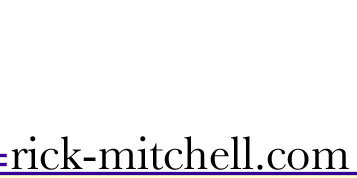AMRAE president calls for terrorism coverage audit
By Rick Mitchell
PARIS--As France’s terrorism risk pool Gareat moves to spur price competition for reinsurance with a fundamental change to its tender system, the president of the country’s risk management association wants an audit into the premium trail for terrorism coverage that he considers “very expensive.”
The pool for coinsurance and reinsurance of terrorism risks—the Gestion de l’Assurance et de la Réassurance des Risques d’Attentats et Actes de Terrorisme (Gareat)—was created in the wake of the September 11, 2001, terrorist attacks in the United States to provide terrorism coverage for assets whose insured value exceeds €6 million. Under the system, the state's reinsurer, the Caisse Centrale de Réassurance, intervenes to cover a terrorist attack if losses exceed €2.2 billion.
More competition for reinsurers
François Vilnet, vice-president of the private–public partnership company that manages Gareat on behalf of the state and insurers, said stability in the market for reinsurance has allowed Gareat to improve terms. “We are planning to change the system in which only certain reinsurers act as lead reinsurers and make bids, and others follow. Before, only these reinsurers gave prices. [Henceforth], each reinsurer will make its own bid. The same technical conditions apply to all insurers,” he said.
“Last year, most reinsurers were kept in Gareat. Now, we will only retain the reinsurers offering the best prices. Some could get eliminated. There is a risk for them. That should be a significant boost for competition,” said Mr. Vilnet, who said the changes were also motivated by the European Commission's demands for improved competition in the insurance sector.
Mr. Vilnet, also deputy head of global business development for Bermuda-based Partner Reinsurance Company Ltd, said: “There has been no contact with risk managers yet about the planned changes.” He stressed that Gareat’s coverage, and legal and contractual details would not change. Gareat’s agreement with the government, recently extended to December 31, 2009, will also not be affected,” Mr. Vilnet added.
“The changes are not aimed at changing the philosophy of the scheme,” he added.
But no large price cuts for buyers
Buyers may no see large price cuts for terrorism cover, however, experts say.
“Insurers say they pay too much for reinsurance, while the premiums they take in are variable, as they are based on industrial-risk premiums,” Mr. Vilnet said. “Premiums for industrial terrorism risk are in fact down 15% to 25% since 2004, while coverage has been significantly increased at the same time. If premiums were rising, then risk managers could complain. There is no real reason for them to complain on the current situation, as the cover given by reinsurers is extremely broad,” Mr. Vilnet said.
Michel Yarhi, president of the Association pour le Management des Risques et des Assurances de l’Entreprise (Amrae), though, said prices for terrorism cover are still high. “I have not seen any decrease,” he said. “Prices for terrorism coverage are still very high. We are still paying a [premium] rate of about 20%,” said Mr. Yarhi, also group insurance manager for Paris-based Société Générale.
“Of course insurers want to maintain the same prices,” he added.
“We have wanted to do an audit of the Gareat system for a long time,” said Mr. Yarhi, who said he had not yet seen details of the new Gareat tender system. “We have been paying premiums [for terrorism coverage] for several years and during that time there has been no disaster to pay for. So our first question is: where is the money? Who is profiting from it and will it be available in the case of a disaster?” he said.
Mr. Vilnet said Gareat’s administrative council, including members of France’s insurer federation, the Fédération Française des Sociétés d'Assurance; mutual insurer association, the Groupement des Entreprises Mutuelles d’Assurances; and of reinsurer group, the Association Des Professionels De La Réassurance En France, of which Mr. Vilnet is president, would meet to approve the new system in early September.
Presentation planned for Monaco
Gareat also plans to present the changes to this week’s gathering of reinsurers in Monte Carlo, Monaco, he said.
He acknowledged that “some reinsurers could be bothered by the changes, particularly the followers. We will see their reaction in Monte Carlo.”
“Last year, more than 70 reinsurers participated in Gareat. With the changes, there could be fewer or maybe more participants. This is difficult to predict,” he said.
“In any case, it will be very open and we think there will be enough reinsurers,” he added.
Reinsurer capacity based on credit rating
Mr. Vilnet said the new system would allow bidders to hedge the risk of elimination by making two independent offers. “They could make one bid for a certain capacity, say, €100 million, and another bid at another capacity, say €500 million.”
As with the current system, reinsurers’ capacity will be determined by their credit ratings, Mr. Vilnet said. “A reinsurer with an AAA rating will be able to offer much more coverage than one with a BBB rating,” he said.
Insurers may also bid. “Before, they mainly participated as followers. Now we will ask them if they wish to participate and price the cover in the first stage to arbitrage their costs of reinsurance,” he said.
Another change is that coverage will be distributed into six tranches at €300 million each, compared to the previous distribution of four tranches of €400 million, plus one at €200 million, Mr. Vilnet said.
(Appeared Sept 7, 2007)

